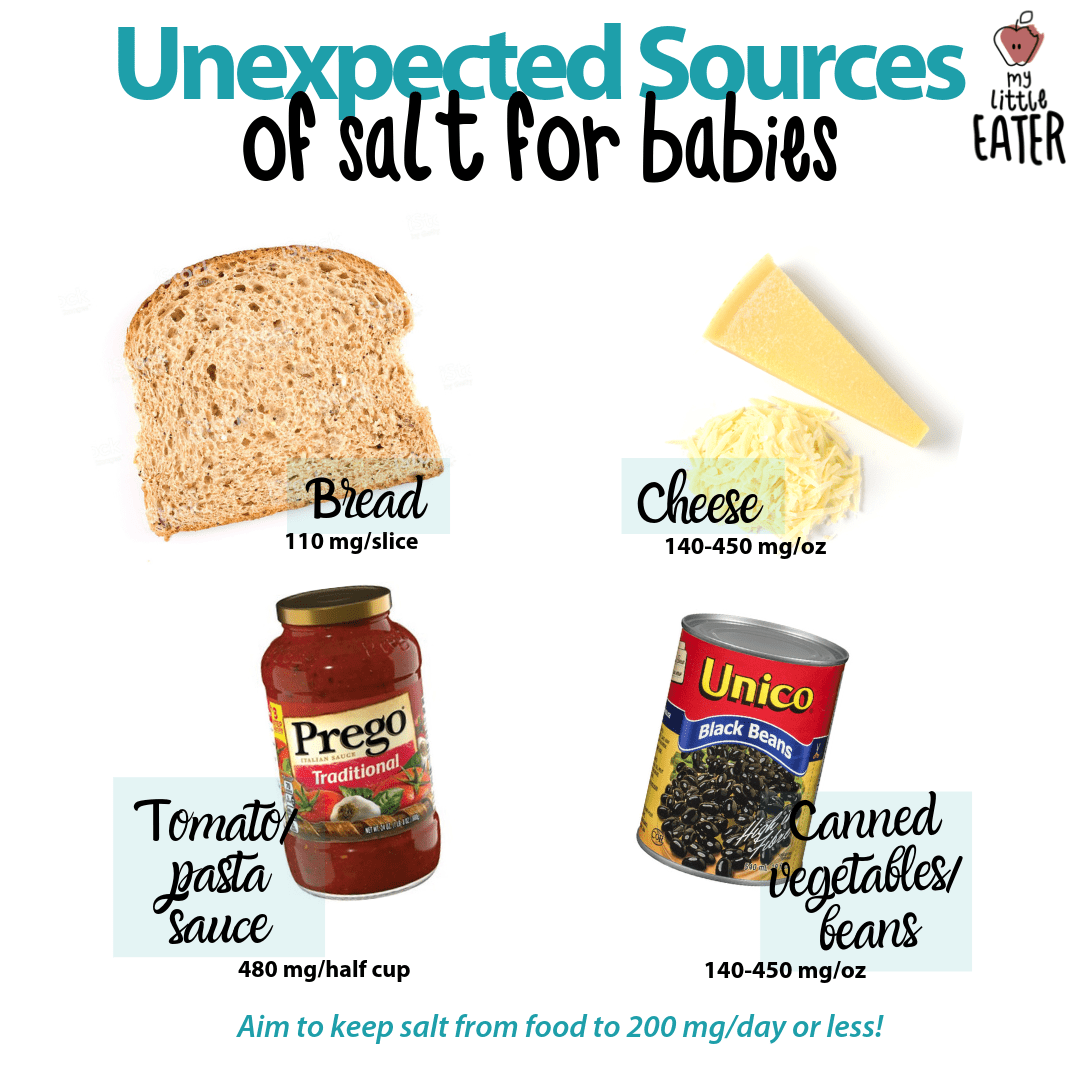
Introducing solid foods to babies is an exciting milestone in their development. It’s a time when parents carefully choose each ingredient to provide the best nutrition for their little one. However, one ingredient that often raises concerns is salt. While salt is an essential mineral for our bodies, it’s important to understand how much is safe for babies.
Why is salt a concern for babies?
 “>
“>
Excessive salt intake can be harmful to people of all ages, but babies are particularly vulnerable. Their kidneys are still developing, which means they are less efficient at processing sodium. Additionally, a high salt diet during infancy may contribute to a preference for salty foods later in life, which can increase the risk of developing high blood pressure and other health conditions.
So, how much salt is safe for babies?
The American Academy of Pediatrics recommends not adding salt to food prepared for infants under 12 months of age. Breast milk and formula already contain an appropriate amount of sodium to meet the needs of a baby’s developing body. However, it’s essential to be mindful of hidden sources of salt, such as processed baby foods or snacks, as they may contain higher sodium levels than homemade meals. Always read labels and choose low-sodium options whenever possible.
 adding salt to food prepared for infants under 12 months of age. Breast milk and formula already contain an appropriate amount of sodium to meet the needs of a baby’s developing body. However, it’s essential to be mindful of hidden sources of salt, such as processed baby foods or snacks, as they may contain higher sodium levels than homemade meals. Always read labels and choose low-sodium options whenever possible.”>
adding salt to food prepared for infants under 12 months of age. Breast milk and formula already contain an appropriate amount of sodium to meet the needs of a baby’s developing body. However, it’s essential to be mindful of hidden sources of salt, such as processed baby foods or snacks, as they may contain higher sodium levels than homemade meals. Always read labels and choose low-sodium options whenever possible.”>
When can babies have a little salt?
After the age of 12 months, you can start gradually introducing small amounts of salt to your baby’s meals. It’s crucial to do this in moderation and consult with your pediatrician to ensure your child’s diet remains balanced and healthy. Remember, a baby’s taste buds are still developing, and it’s an excellent opportunity to encourage a love for a variety of flavors without relying on excessive salt.
In conclusion, while it’s important to provide a nutrient-rich diet for our little ones, salt should be used sparingly, especially in the first year of life. Prioritize whole, natural foods, and limit processed options to ensure your baby grows up healthy and develops a balanced relationship with food.









